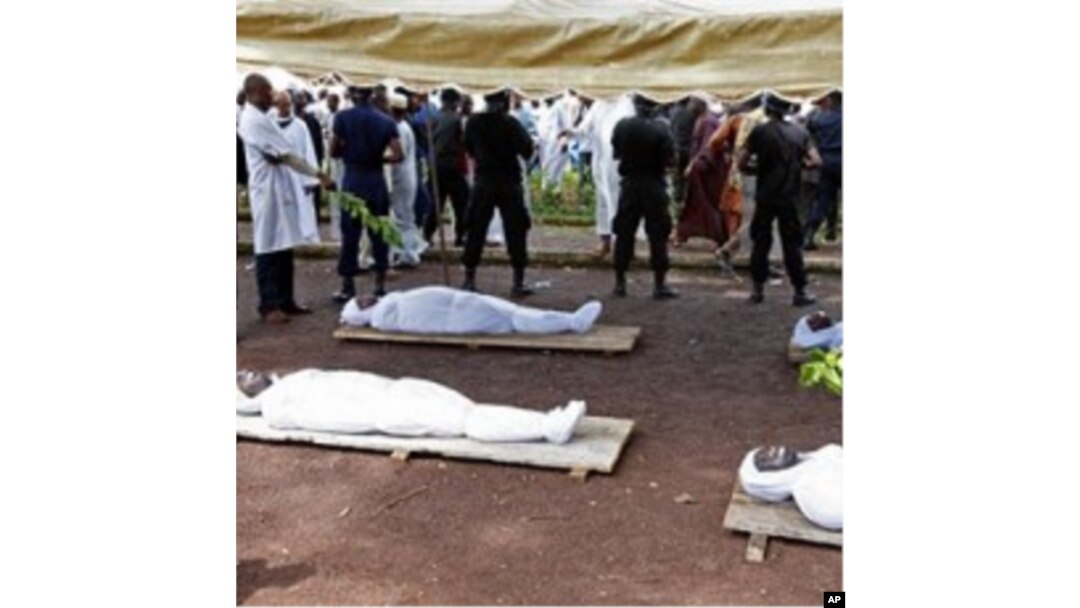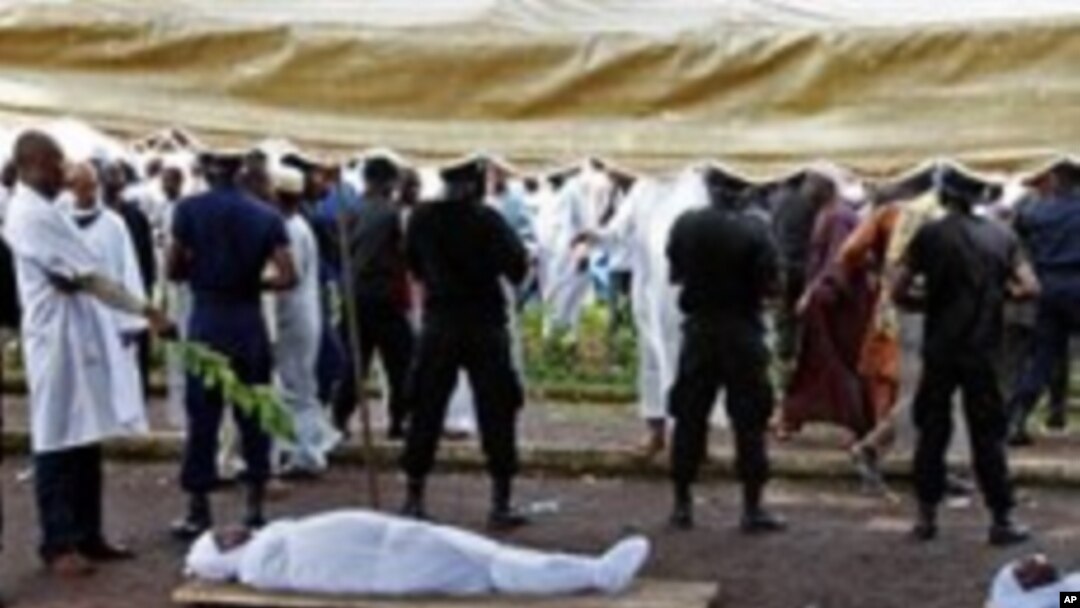A commission of inquiry established by Guinea's military government says there are no confirmed cases of rape.
In the most comprehensive report to date on September's killing, Human Rights Watch says the violence likely amounts to crimes against humanity.
Corinne Dufka heads the group's West Africa office.

Bodies of people killed during a rally are seen at the capital's main mosque in Conakry, Guinea (File Photo - 02 Oct 2009)
"We concluded that the events of September 28 and the days after were part of an organized, premeditated operation by primarily the presidential guard, but also groups of gendarmes, police, and civilian militia in which they arrived at the stadium in an organized manner, deployed around the stadium in an apparent attempt to maximize the number of casualties," Dufka said. "They then entered through the main door firing directly into the crowd, leaving dead and wounded in their wake, and then went up to the covered stands where the opposition leaders were and beat them, some of them so seriously that they lost consciousness."
Dufka says security forces then engaged in widespread sexual assault against as many as 100 women who were taking part in the protest against the expected presidential candidacy of the country's military ruler.
But a commission of inquiry established by that military government says it has found no evidence of rape. Pierrette Tolno heads the commission's subcommittee investigating rape.
Tolno told reporters in Conakry Wednesday that her subcommittee received a report from the Donka National Hospital documenting no confirmed cases of rape. According to the report, she says there were only cases of suspected rape.
Of those 32 cases of suspected rape, only one woman came to the hospital on September 28.
In a health center near the national stadium, Tolno says the subcommittee found just one other case of suspected rape, and that was more than one month later.
Because most of the women who say they were raped did not go to the hospital until more than one month later, Tolno says, for the moment, the commission concludes that there were no confirmed cases of rape.
"I personally spoke with 27 women who had been raped both within the stadium as well as within a number of private residences where they were subjected to three to five days of brutal gang rape," Dufka said.
Dufka says there are many good reasons why women did not seek immediate treatment, chiefly that hospitals and health centers were controlled by the military following the violence.
"You do not need medial records to be able to ascertain that women were raped at the stadium. The rapes were done, shockingly so, in broad daylight," Dufka said. "It was hard for us to find a witness who did not see a sexual violation happening. We have scores of witnesses describing women being subjected to individual and gang rape, so I am really surprised that they have not been able to gather those testimonies, and one wonders about possible ulterior motives in their not doing so."
Guinea's military ruler Captain Moussa Dadis Camara blames the violence on both his political opponents and what he calls "uncontrollable elements" of the military.
Captain Camara was shot by the former head of the presidential guard two weeks ago. In an interview with French radio, Lieutenant Aboubacar Diakite says he shot Captain Camara because the captain was trying to blame him for the September killing.
Security forces continue their search for Diakite, who told Radio France Internationale that he will not turn himself in because he believes he will be killed to cover-up what he calls the premeditated violence of September 28.


